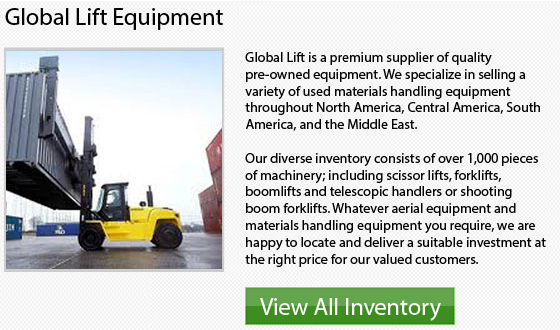
The marketers of vertical-mast, rough-terrain forklifts have endured even in spite of diminished overall sales. For instance, there are at least 19 different brands in North America, with more than 100 various units available. In regards to manufacturers, there is practically the same number of telehandler makers, even though their products are being marketed under 24 various brand names. Understandably, several of the brand names market both lift trucks and telehandlers. Some of the key players in the business include names like JCB, Case, Lift King, Tovel, Sellick, Manitou, Ingersoll Rand and Omega Lift.
By borrowing several of the features that have increased the telehandler's popularity, forklift makers have been able to increase their maneuverability advantages. For example, AUSA, Omega Lift, Tovel and Manitou utilize hydraulic chassis-leveling systems which enable the operator to square up the frame of the truck when it is sitting on uneven terrain in order for lifts to be made more safely. This feature is offered as an alternative by Swinger, Load Lifter, and Lift King lift trucks.
The 4-wheel steer is another telehandler-like technology. Omega Lift, Lift King, Tovel and Load Lifter are makers that provide rigid framed machines which operate on 4 equal sized tires. These four-wheel coordinated steering and crab-steering modes provide the incredible maneuverability that rivals the 4-wheeled steering traditional lift truck models. There are extra flexibility options with the sideways shuttle crab-steer mode too.
The carriage sideshift could greatly enhance placement dexterity. The mast sideshift is a common feature today. This is found on most available lift trucks. It enables the operator to move the mast hydraulically a few inches to either side of center. A different option is the carriage sideshift. This functions by moving the carriage to either side of the center of the mast.